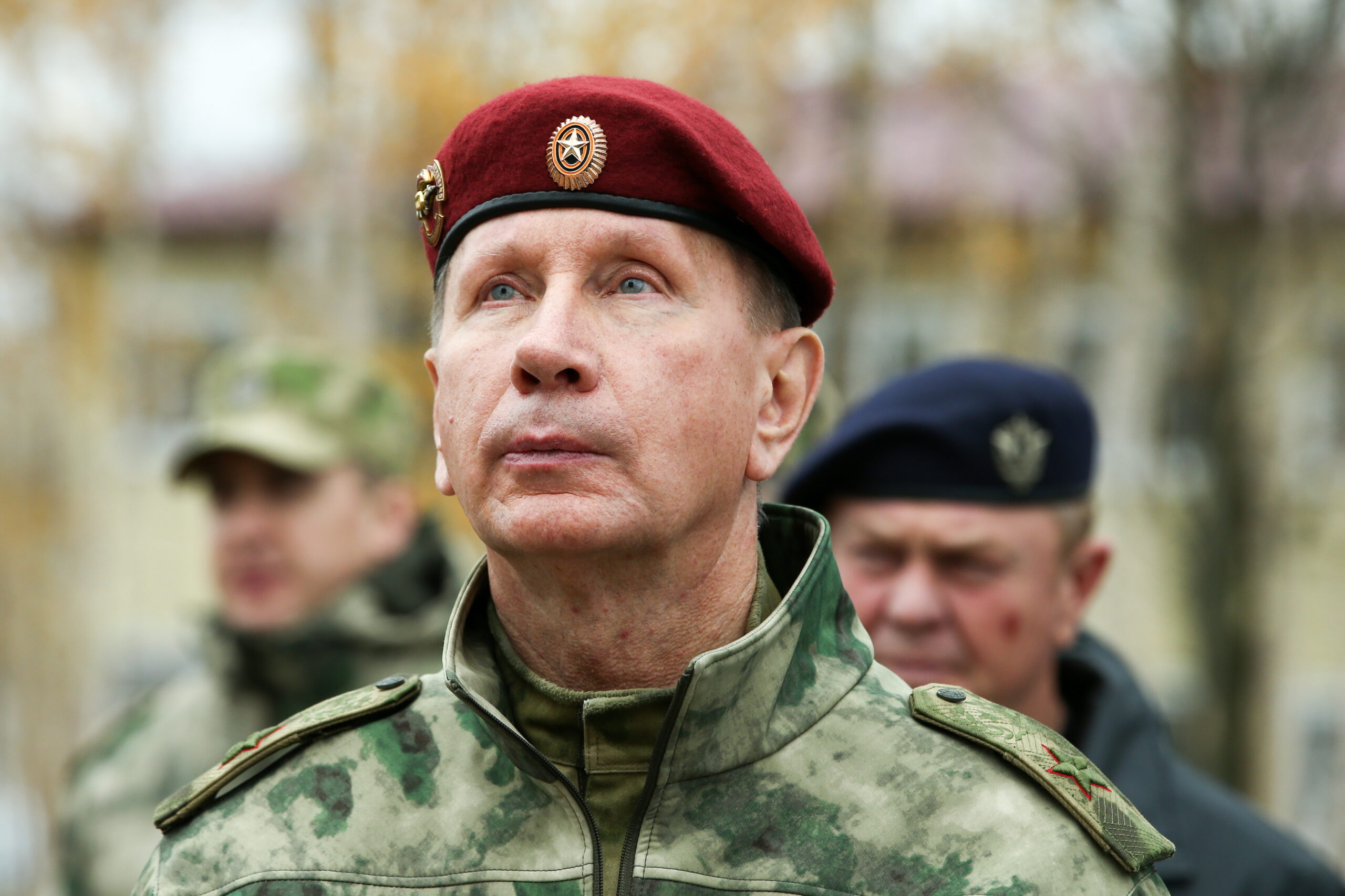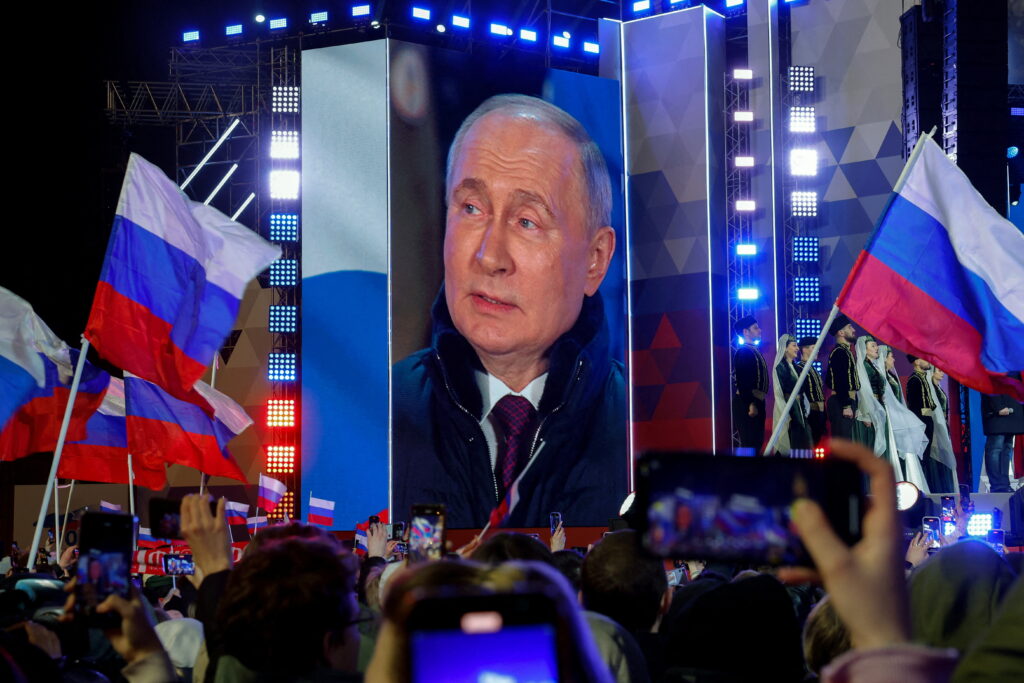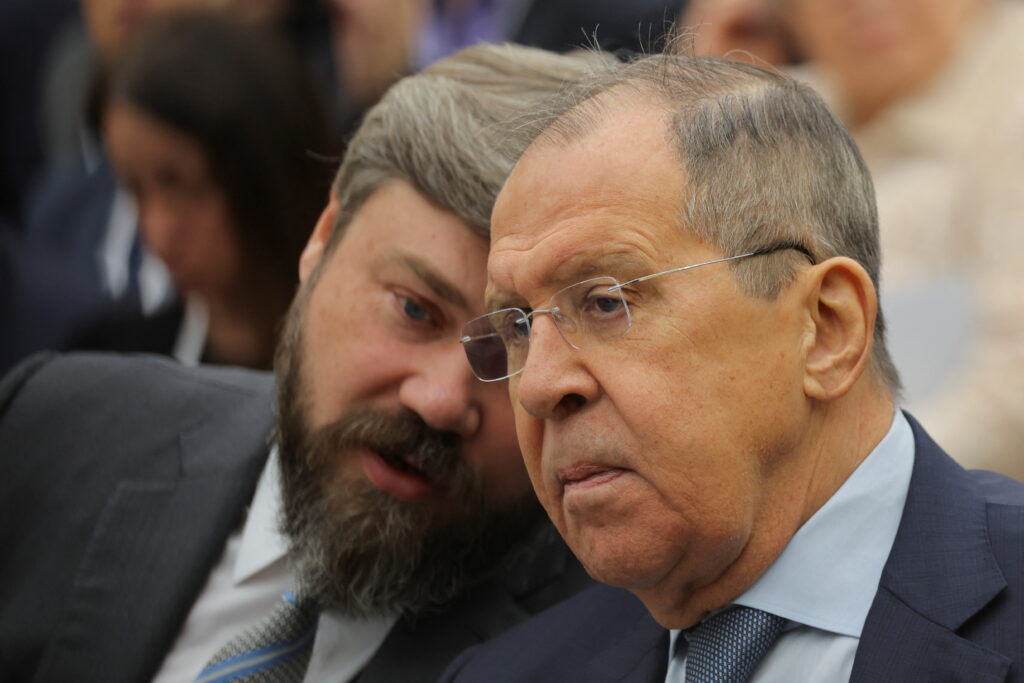Viktor Zolotov, the head of Rosgvardia (National Guard of Russia) and former commander of Vladimir Putin’s security guards, has become one of the main beneficiaries of Yevgeny Prigozhin’s mutiny. The president permitted Zolotov’s structure to use tanks and heavy weapons. Moreover, Rosgvardia will supervise the creation of the so-called ‘governor’s PMCs’ (regional armed formations) and oversee them. Not so long ago, Zolotov won a ‘local’ victory over one of the security agencies competing with his formation, namely the Interior Ministry. Alexander Khinshtein, a State Duma member who is close to the Rosgvardia leaders, complained that the Ministry was luring Rosgvardia members and trying to create a similar organisation on the basis of its Grom special forces unit. As a result, Vladimir Putin personally reassigned Grom, subordinating it to Rosgvardia. This demonstrated, once again, Zolotov’s influence on the president and his views. Even though the head of Rosgvardia was considered to be among Prigozhin’s patrons, his stronger position after the mutiny shows that Putin does not suspect his head of guard of conspiracies and intrigues, or of supporting the founder of the Wagner Group. In fact, Zolotov’s formation has evolved into an alternative to the two traditional Russian security agencies: the Ministry of Defence and the Interior Ministry. On the one hand, Rosgvardia members can support and back up the army and the Interior Ministry. On the other, they can confront them in the event of a revolt, if any. Vladimir Putin could entrust the latter function only to an agency headed by someone who is very close to him.
Always a guard
In the early 1990s, Viktor Zolotov, a member of the Soviet KGB, became a security guard for Russia’s first president, Boris Yeltsin. He is featured in several famous photos of Yeltsin. Zolotov then moved to a similar job in the St. Petersburg mayor’s office and guarded mayor Anatoly Sobchak. There, Zolotov met the deputy mayor Vladimir Putin, who oversaw the foreign trade relations in the city administration. The former law enforcers quickly became friends, united by their love for judo. After Sobchak lost the election, Zolotov and Putin had to find new jobs: the former was hired as a security guard for the St. Petersburg ‘authoritative businessman’ Roman Tsepov, while the latter, as he himself admits, had to work as a taxi driver. Ultimately, Putin climbed the career ladder: he was invited to work in the Kremlin, then becoming the head of the FSB, and subsequently prime minister. Putin did not forget his mate and asked Viktor Zolotov to join him as a bodyguard. When Vladimir Putin was elected president, Zolotov became the head of his security service in the rank of deputy head of the Federal Security Guard Service (FSO). The guards, with Zolotov in the lead, soon became Vladimir Putin’s favourite confidants. In the early 2010s, some of them were promoted: Aleksey Dyumin was appointed Deputy Defence Minister and then governor of the Tula Region, Dmitry Mironov worked as Deputy Interior Minister and was in charge of the Yaroslavl Region while Yevgeny Zinichev was governor of Kaliningrad and then became the head of the Ministry of Emergencies. Zolotov keeps in touch with his former subordinates and publicly shows that they remain in warm and close relationships. Zolotov also maintains the same kind of relationship with Ramzan Kadyrov, who has the status of Colonel General of the Rosgvardia: they regularly meet, praising and rewarding each other. Zolotov’s family members are engaged in various businesses, from agriculture to construction, and own luxurious real estate. However, Viktor Zolotov cannot be called ‘a hidden oligarch’: he is presumably satisfied with what he can get as the head of the Rosgvardia (of course, not only and not so much with his salary) and does not endeavour to organise a wide business expansion for his family. The absence of high business stakes makes Zolotov less conflict-prone as a major player in Putin’s circle: he has no reason to fight against most of its members unless, of course, they run rival security corporations.
In 2013, Vladimir Putin appointed Viktor Zolotov deputy commander of the Interior Ministry’s internal troops, and promoted him to commander with the rank of First Deputy Minister a year later. In 2015, Zolotov was promoted to the rank of army general. A year later, he ascended further: the internal troops were carved out as a separate structure, called Rosgvardia. The formation also incorporated OMON (Special Designation Police Force) and SOBR (Special Rapid Deployment Force), as well as several other units. Quite predictably, Viktor Zolotov took the reigns. His status as the head of the Rosgvardia became equal to that of a minister. Thus, as the head of Rosgvardia, Zolotov had only one boss: the Russian president. His position had one more important advantage: it entailed membership in the country’s Security Council. As a result, Viktor Zolotov joined the most respected body in the system of power.
The emergence of Rosgvardia was Putin’s response to protests involving thousands of people. The structure was responsible for suppressing protests, guarding strategically important facilities, fighting extremism and controlling the circulation of weapons. However, by creating a self-contained ‘guard unit’, Vladimir Putin had broader plans, going beyond the fight against opposition in the streets. If anything, the ‘Praetorians’ were to become a counterweight to the ‘classic’ security agencies: the Interior Ministry and the Ministry of Defence. The Russian president devotes a lot of attention to the prevention of a possible coup d’état: he periodically rotates officials, moving them from comfortable and familiar positions to new and uncomfortable ones, he redraws the boundaries of authority for traditional agencies, and creates competition between them. The creation of the Rosgvardia intensified competition among law enforcers. It is a well-known fact that members of the Interior Ministry are not particularly fond of the FSB (and vice versa), and both have their own reasons to dislike the Ministry of Defence. Putin added another component to this ‘triangle of conflict’ by establishing the Rosgvardia, headed by Viktor Zolotov, a man who is extremely close to the president. Zolotov grasped his task and began to engage in intrigues and conflicts with his ‘competitors’. He is known to have unfriendly relations with Defence Minister Sergei Shoigu, Interior Minister Vladimir Kolokoltsev, and head of FSB Alexander Bortnikov. The atmosphere of intrigue and conflict was further fuelled by constant rumours which held that Dyumin, Mironov and Zinichev (i.e. Zolotov’s men) would head the security agencies. However, these rumours have not materialised to date. Using his trusted man, Vladimir Putin has divided and continues to divide the law enforcers, thus retaining his power over them.
The outbreak of war has benefitted Zolotov even further: he fully supported the idea to start the war at the Security Council meeting in February 2022 and continues to be one of the main hawks in Vladimir Putin’s entourage. One reason is that Rosgvardia has been involved in the invasion of Ukraine, but there is more to it. In contrast to Defence Minister, Zolotov has retained his human and technical resources and can easily support the war by simply paying lip service. In case of serious failures, Defence Minister is barraged with criticism that does not extend to Zolotov and Rosgvardia. In contrast, successes are claimed by all agencies, including Zolotov’s structure.
However, Zolotov’s career trajectory almost suffered a setback: he bet on the wrong horse last year. With the help of Yevgeny Prigozhin, Zolotov and his close entourage, namely Dyumin and the head of Chechnya Ramzan Kadyrov (Chechen paramilitary troops are part of the Rosgvardia), made an aggressive attempt to oust Defence Minister Sergei Shoigu. Prigozhin was doing business in Dyumin’s region and clearly remained in contact with him. The attempt was not successful: the Kremlin did not give in to Prigozhin’s verbal blackmail demanding Shoigu’s dismissal, and certainly did not go along with Prigozhin after the mutiny. Dyumin was involved in negotiations with Prigozhin, while Zolotov gave no reason to doubt his loyalty: he took the ‘proper’ side and did not support the mutiny. After Prigozhin’s death, only Dyumin spoke sympathetically about him. Viktor Zolotov and other high-profile FSO officials remained silent, while Ramzan Kadyrov actually repeated Putin’s remarks about «a man with a complicated fate.» As a result, the president rewarded the former head of his guard with gifts involving new powers and entitlements.
By July 2023, the presidential guards and their boss finally received the status of law enforcers, and they must fight other law enforcers if need be. Clearly, the Rosgvardia needs tanks and heavy weapons not to fight the opposition in the streets, but to counterbalance the army. The Interior Ministry is evolving into the weakest participant in this power play: in case the Interior Ministry gets out of control, even the ‘governor’s PMCs’ can be sent to fight against it.
However, Viktor Zolotov has not yet advanced to a position of a super-law enforcer: the Rosgvardia has not received heavy weapons and is unlikely to get them in the near future since those weapons are more needed by the army at the frontline. The same holds true for the equipment that the official security forces took away from the Wagner Group: tanks and Grads went to the Ministry of Defence rather than to Zolotov’s agency. Regional PMCs are not mushrooming, either: the regional budgets must withstand multiple expenses while revenues are not rising. Vladimir Putin has issued an incomplete advance payment to the head of his guards and is in no hurry to strengthen his structure. The president understands perfectly well that the superguard will try to impose his own rules sooner or later, also to the president himself. That is why Viktor Zolotov (as well as his former subordinates) will get full control over all security agencies. Putin will never stop using the clever ‘divide and conquer’ rule. But he will always need reliable and trusted people to scare the power corporations and keep them on their toes. This means that Putin will always need Viktor Zolotov, who understands the boundaries of his role and tries not venture out beyond them.










